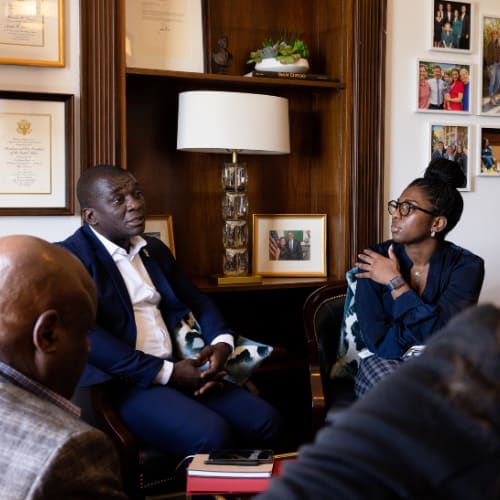Government Accountability and Engagement

In Africa, Asia, and Latin America and the Caribbean (LAC), PAI is supporting youth-led organizations and young people by giving them a platform to use their own voices and elevate those of other young people to improve adolescent and youth sexual and reproductive health (AYSRH). PAI has been committed to supporting youth-led organizations and youth leaders for years. Last week, to celebrate International Youth Day, we wanted to give All Access readers a chance to hear directly from our partners who are at the forefront of improving AYSRH. You heard from partners including Yordi Wolde of TaYA Ethiopia, who shared her story of combating HIV stigma when she was only six years old; and Tenin Traore, who felt a responsibility to improve access to sexual and reproductive health information, services and supplies in Côte d’Ivoire when a close friend died due complications from an unsafe abortion. But this is only a sample of the inspiring work our partners are doing.
Only when young people are given the opportunity to engage in policy discussions can the real needs of youth and adolescents be met with tangible improvements to AYSRH. One needs to look no further than the progress our YOUAccess partners have achieved.
In Kenya, Women Promotion Centre has held dialogues with key government stakeholders, urging them to implement the National Adolescent Sexual and Reproductive Health Policy (NASRHP). As a result, the government is fast-tracking youth centers in several counties—meaning more young people will have a safe and friendly space to discuss their reproductive health needs and access services.
In Chiapas, Mexico, young indigenous leaders at PAI’s partner Observatorio de la Mortalidad Materna (OMM) supported the development of a rights-based, culturally appropriate policy framework to implement the National Strategy for the Prevention of Teenage Pregnancy (ENAPEA) according to the needs of indigenous youth. And OMM isn’t alone in this. While youth has been a hot topic for many years, we are seeing an increased number of organizations incorporating the unique voices of young people into their work.
And in India, YOUAccess partner SAHAYOG sees youth as a cross-cutting issue and has started to incorporate a youth perspective in many of its projects, not just those that have a youth component. The experiences of young people are rarely incorporated into policy, but SAHAYOG is bringing their perspectives forward to ensure that programs and policies address the real needs of young people.
Youth-led organizations and youth leaders bring innovative ideas to their work. Natasha Salifyanji Kaoma, who saw that girls had to leave class because sanitary napkins weren’t available, started a door-to-door fundraiser to raise money for purchasing sanitary napkins to help keep girls in school. She grew that first fundraiser into Copper Rose Zambia, a young-women-led organization that works to make AYSRH a priority.
But still, more needs to be done. Funds like YOUAccess that provide dedicated support to youth-led organizations and youth leaders—especially for advocacy—are uncommon. Youth leaders and youth-led organizations are best positioned to represent the real AYSRH challenges and offer viable solutions. Yet, their involvement is often tokenistic. Partnering with young people and youth-led organizations in a meaningful way to elevate these critical voices ultimately leads to empowered young people and improved AYSRH.
Through PAI’s YOUAccess Fund, we support youth-led organizations or young people like those you heard from last week to hold their governments accountable for youth-related Family Planning 2020 (FP2020) commitments. To date, more than 35 governments have included youth-related pledges in their FP2020 commitments; supporting youth-led organizations is critical to ensure governments make good on these commitments. The YOUAccess Fund provides dedicated advocacy funding to these organizations. The ability for organizations to realistically budget the staff time needed to meaningfully support policy advocacy is rare for youth-led organizations, but it is the foundation of PAI’s work. Without this dedicated funding, the ability for young people to meaningfully engage in policy change is limited. While a fund like YOUAccess focuses more on policy change, PAI also provides individualized support to partners to strengthen their organizational capacity that not only helps them meet their policy goals, but results in stronger institutions.
Interested in hearing more about PAI’s youth partnerships at the International Family Planning Conference? Come to our panel discussion, which will feature three young women all working to improve AYSRH at the community, district and national level.
Stay informed about the issues impacting sexual and reproductive health and rights.